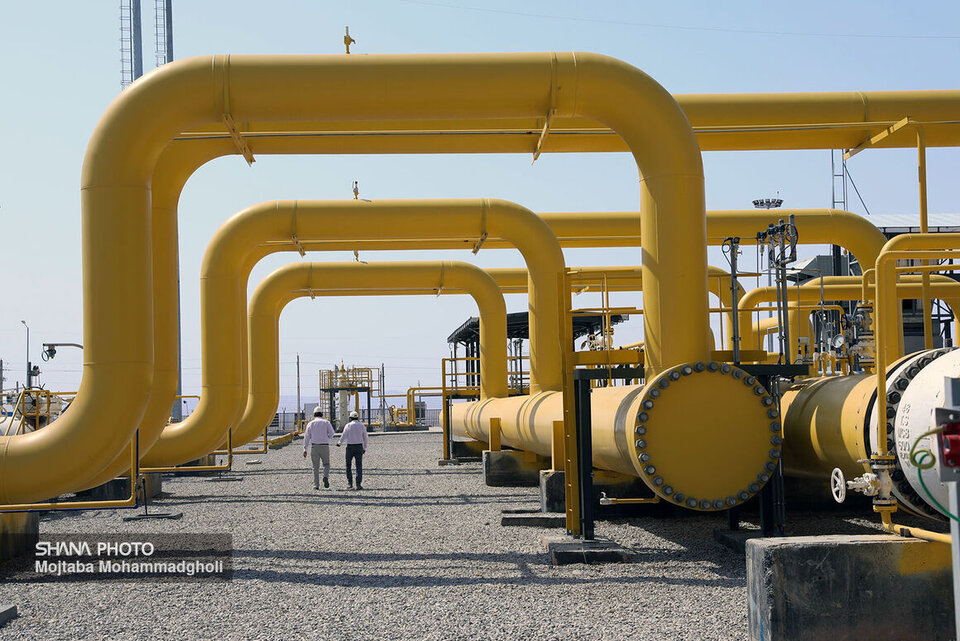
Iran’s gas infrastructure remains both antiquated and inefficient.
“[Mohammad Hosseini] expressed Iran’s readiness to expand its cooperation with Russia to improve the safety of gas facilities against sabotage and terrorist attacks.”
Iran has the world’s third-largest proven oil reserves and, even under sanctions, remains one of the top ten world producers. Yet Iran’s gas industry lags far behind its oil extraction capabilities due to an antiquated refinery and pipeline network. Iran must import much of the gas that it utilizes both to fuel transportation needs and to inject into oil fields to facilitate extraction. Iran is increasingly looking to Russia, for assistance.
The excerpted report from Iran-focused Dubai-based brokerage PCM Farsi, addresses a meeting between Hossein Ali Mohammad Hosseini, the director of the Corporate Planning of the National Iranian Gas Company, and Russian energy officials. Hosseini’s comments that Russia and Iran might cooperate regarding gas infrastructure modernization reflects the government’s commercial agenda: if the Islamic Revolutionary Guard Corps-linked National Iranian Gas Company can curb losses attributable to waste, then it will not need to spend as much to import refined gasoline.[i] The report also notes the vulnerability of Iran’s gas infrastructure . Iran has blamed Israel, without evidence, for a February 2024 explosion on a major pipeline. In the wake of the Woman, Life, Freedom protests, there have been numerous other gas infrastructure explosions across the country according to reports and social media discussions by ordinary Iranians. Many of these incidents go unreported, while the official Iranian media often dismisses the reported incidents as accidents, or the result of illegal tapping of gas lines to steal petrol. To acknowledge openly the need to work with Russia against gas infrastructure sabotage and terrorism suggests that the Iranian gas industry officials do not fully believe the more innocent explanations from their government. Given the importance of hydrocarbons to Iran’s economy, a faltering gas infrastructure and any vulnerability to sabotage, vandalism, or insurgency could disproportionately affect Iran’s economy and potentially its military readiness.
Sources:
“تهران و مسکو همکاریهای خود را در زمینه فناوری گاز گسترش میدهند” (Tehran and Moscow expanding their cooperation in the field of gas technology),” PCM Farsi (Persian language portal of Dubai-based PCM Brokerage), 14 May 2024. https://pcmfa.news/2024/05/14/11977/
Mohammad Hosseini mentioned the desire for Iran to expand relations with Russia in the energy sector, and said his country welcomes the proposal of the Ministry of Energy of Russia to hold a specialized meeting on digitization, monitoring, and data analysis at the Russian Energy Week, as well as at the St. Petersburg Energy Congress. In his remarks, the director of the National Iranian Gas Company stressed the need to share common experiences in area such as reducing the amount of gas loss, and he expressed Iran’s readiness to expand its cooperation with Russia to improve the safety of gas facilities against sabotage and terrorist attacks.
Notes:
[i] For discussion of Iran’s efforts for gasoline self-sufficiency, see: Michael Rubin, “Achieving Gasoline Self-Sufficiency in Iran,” OE Watch, August 2018. https://community.apan.org/wg/tradoc-g2/fmso/m/oe-watch-past-issues/241432/download
Image: Iran’s gas infrastructure remains both antiquated and inefficient.
Source: Mojtaba Mohammadgholi, Shana Photo, https://media.shana.ir/d/2023/08/20/3/392725.jpg?ts=1692521593000
Attribution: Shana.ir
